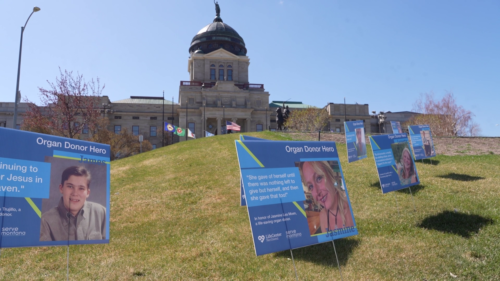February celebrates Black History Month; a time of the year to recognize individuals and events that have given voice and opportunity to African Americans across the nation.
 As we wrap up the month, LifeCenter Northwest would like to reflect on the courageous men and women who have contributed to significant medical advancements, and helped reached new milestones in the field of transplantation and organ donation. The field has seen miraculous improvements because of those who have devoted their career to advancing technology, pioneering new techniques, and eliminating racial stigmas. People like Dr. Velma Scantlebury, the first black woman to become a transplant surgeon in the United States. Not only has Dr. Scantlebury performed more than 200 kidney transplants herself, but she also spearheaded the diversification of the medical field, particularly in transplantation.
As we wrap up the month, LifeCenter Northwest would like to reflect on the courageous men and women who have contributed to significant medical advancements, and helped reached new milestones in the field of transplantation and organ donation. The field has seen miraculous improvements because of those who have devoted their career to advancing technology, pioneering new techniques, and eliminating racial stigmas. People like Dr. Velma Scantlebury, the first black woman to become a transplant surgeon in the United States. Not only has Dr. Scantlebury performed more than 200 kidney transplants herself, but she also spearheaded the diversification of the medical field, particularly in transplantation.
Dr. Scantlebury’s work has touched the lives of African Americans across the nation, like living kidney donor Shanae Bezusko and lung recipient Robin Prentice.

Shanae generously donated one of her kidneys to her father, something she had prepared for since she was 10. “Saying donation is important is an understatement. It is also selfless, rewarding and literally the gift that keeps on giving” said Shanae.
Robin was diagnosed with Pulmonary Fibrosis in 2005. She was graced with a second chance at life with a new set of lungs in July 2007. Robin’s life has changed in a number of ways since her transplant, “I am fortunate to be alive and I make the most of it. There are no words for how grateful I am for the support I have received, and the greatest gift; the gift of life”, said Robin reflecting on her transplant.
Though pioneers like Dr. Scantlebury have made substantial developments in the field, there is still a discrepancy in the United States between the number of ethnic minorities on the transplant waiting list, and the number of minority donors.
Right now, African Americans represent 30 percent of the national transplant waiting list, but only 15 percent of deceased donors in 2016. Although organs and tissues are able to be transplanted between people of different races, transplant success rates do increase when organs are matched between people of similar ethnic backgrounds. Having a greater diversity of organ and tissue donors could potentially increase the access to transplantation for everyone.

It is imperative that we continue to register more donors of all ethnic backgrounds. If you haven’t registered to be an organ, eye, or tissue donor, please consider clicking on the ‘register now’ button at the top right of this page and share with your friends and family how important it is to become a donor. Together we can help end the national transplant waiting list and give a second chance at life to the more than 118,000 people in need.
For more information on donation in minority communities please visit: www.lcnw.org/minority-donors





